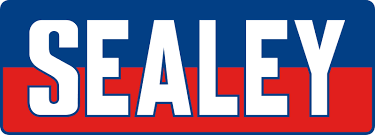
The client
Sealey
Founded in 1978, Sealey is a leading brand of professional tool and workshop equipment. They currently have over 10,000 different product lines including hand tools, power tools and equipment for servicing vehicles. Based in East Anglia, Sealey ship tools nationally and internationally to over 20 countries.


The project
Seamless integration with the TSS service
There are three types of records required by the TSS:
- ENS - Entry Summary Declaration
- SFD - Simplified Frontier Declaration
- SDI - Supplementary Declaration
The initial upload creates a draft ENS which they can submit via our system. This generates a SFD more or less immediately by TSS, and when a shipment of goods arrives in Northern Ireland, a draft SDI is created. PDMS’ solution allows for any draft SDI records to be updated and resent.
After the initial submission of the ENS record, our system can check the TSS for updates. For example, it is possible to check if an SFD or Supplementary Declaration record has been created yet and retrieve information about the records including their new ID.
The benefits
The TraderTap solution provided many enhancements to Sealey's operations, including delivering huge time savings and freeing up valuable members of staff. Key benefits include:
Time efficiencies
Two members of staff saved a minimum of three hours daily, previously spent manually entering ENS data. This time-saving allowed them to focus on their core responsibilities.
Improved processes
Sealey staff previously grouped consignments by customer, with a single ENS covering multiple invoices. The new system allows for the creation of one ENS per invoice, streamlining the process further.
Optimised resource allocation
The task of managing SDI entries, which previously required the equivalent of three full-time staff, now only takes one person about one hour per day.
Client testimonial
“Our workload for the Supplementary Declarations has been reduced from the equivalent of three people working full time to an hour a day of one person, which is amazing. And similarly, the ENS level has saved the guys each easily three hours a day. You could therefore probably equate the API to the full-time work of four people!”

Tim Thompson Chief Commercial Officer, Sealey
More case studies

Unlocking the hidden value in a legacy ERP system

Streamlining processes and improving customer service
